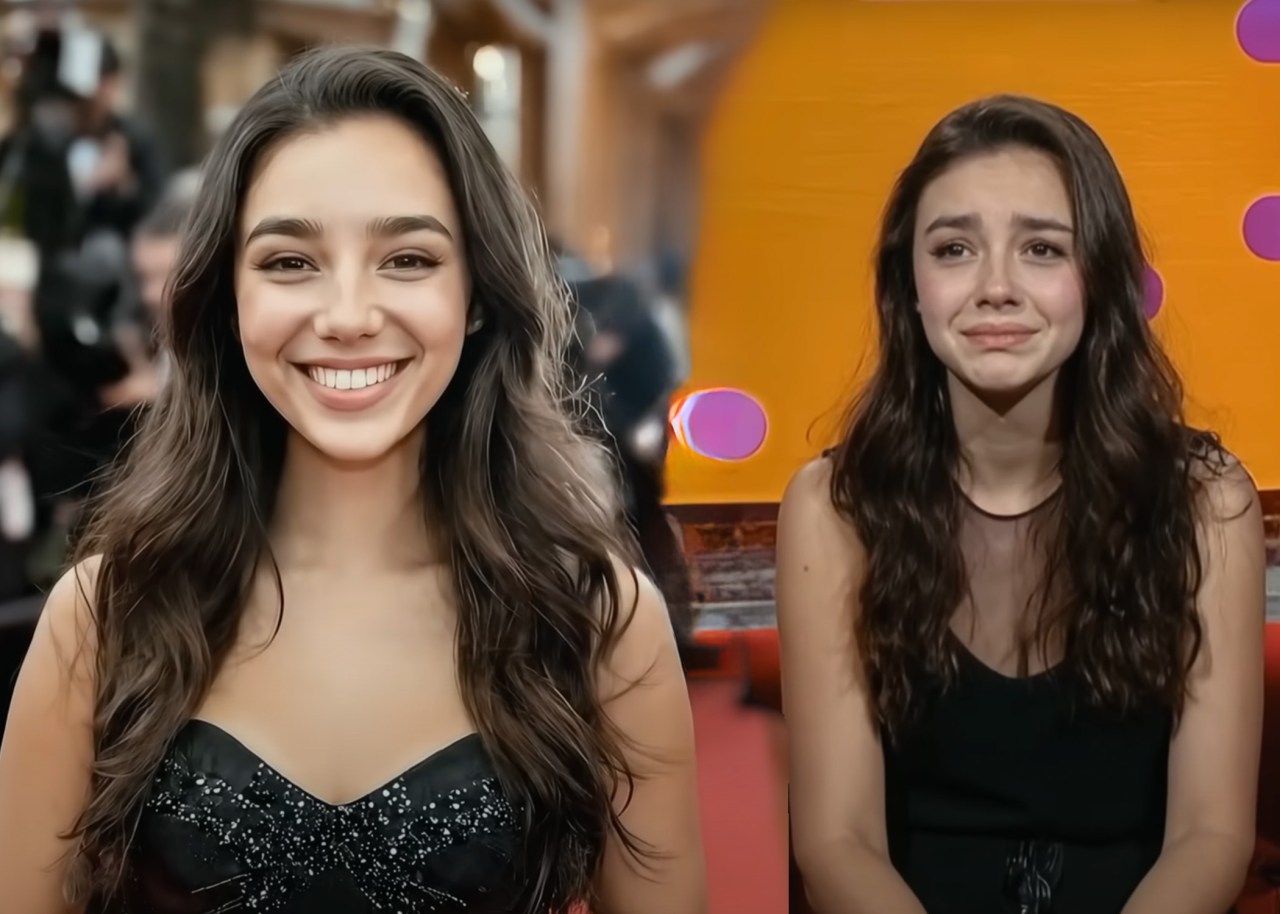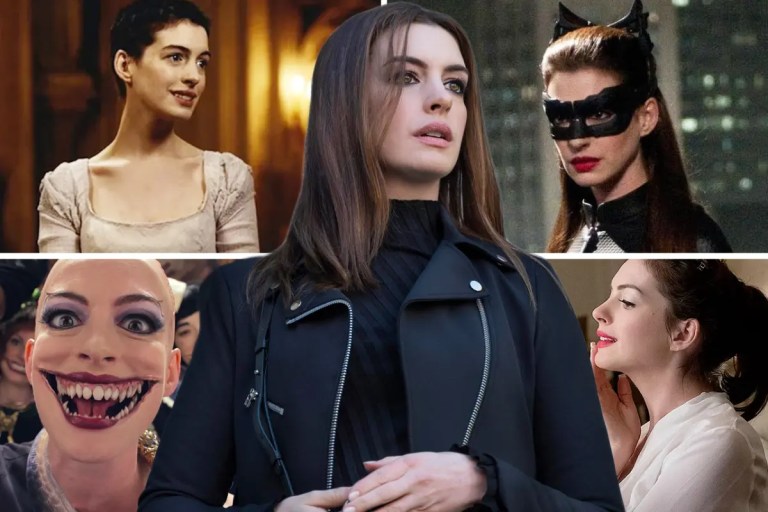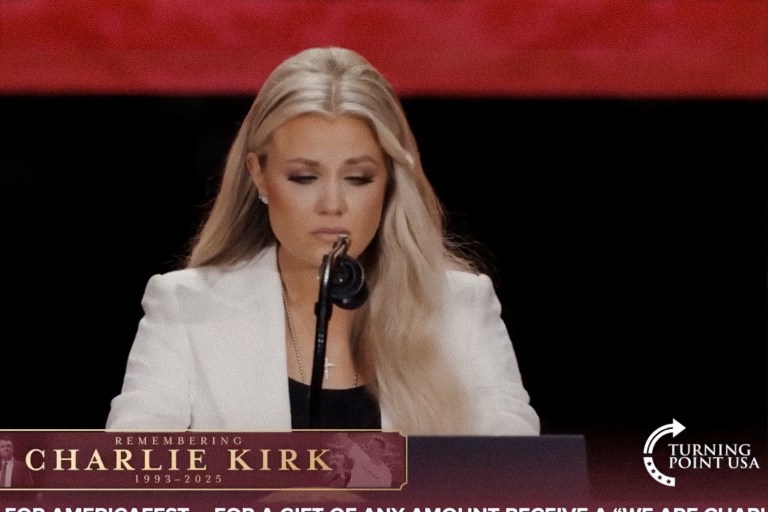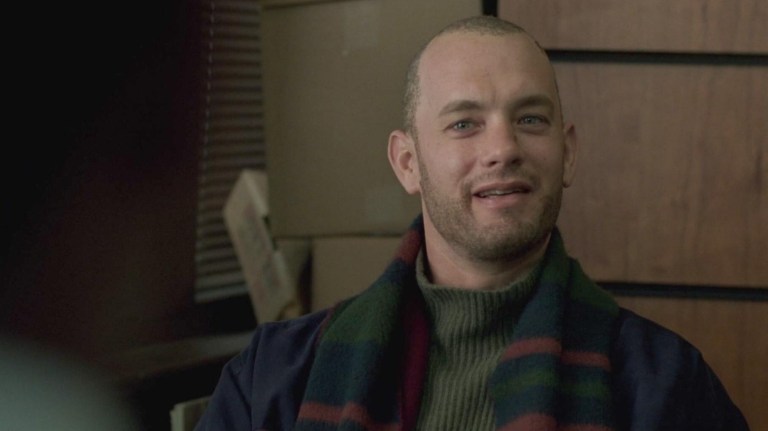
She’s Not Human (But Her Acting Is) & The Oscars Can No Longer Ignore Her
The Oscars love a good stunt.
“Career wins” such as Jamie Lee Curtis’s for Everything Everywhere All at Once are par for the course. Standing ovations for men accused of or even charged with S.A. are not unheard of. (See: Roman Polanski, Casey Affleck.) Both of those incidents were before #MeToo, but still, Hollywood should have known that their applause wouldn’t magically fix misogyny.
Posthumous wins, perhaps the stuntiest of stunts, are also within the Oscar playbook. In 1977, Peter Finch won Best Actor for Network just two months after his death. In 1939, the late Sidney Howard won Best Writing for Gone With the Wind. Later, in 2008, Heather Ledger’s posthumous Oscar was presented as a self-important grand gesture: A glorious tribute to his talent, meant to offset the tragedy of his death. But who actually benefited from this? His grieving family, who accepted the award on his behalf? Certainly not Ledger himself.
Also, if the Academy can award an Oscar to a deceased person, what’s stopping them from awarding it to a virtual person?
You may have heard of Tilly Norwood, an A.I.-created actress who, according to rumor, nearly earned representation at a Hollywood talent agency. She’s the creation of tech C.E.O. Eline Van der Velden, a self-described actress and comedian who was somehow unable to cut it as either, despite her many viral “comedy sketches.” In one of these videos, she asked strangers on the street to drink her saliva out of a cup. When the Internet insinuated that it was unfunny, she insinuated that the Internet didn’t understand art.
Now, Van der Velden is selling Tilly Norwood as “art” rather than artificiality. Granted, some Hollywood actors are looking artificial themselves these days, but nothing like Tilly, with her unsettlingly placed eyelashes and her Instagram page full of non sequiturs. Norwood is obviously a cash grab for Van der Velden — an attempt to capitalize on the trend of A.I. innovation in the tech industry, no matter the human cost. Naturally, Hollywood heavyweights including Natasha Lyonne and Emily Blunt have already begun feuding with Van der Velden and, by the A.I. transitive property, Norwood, claiming that Norwood shouldn’t steal their jobs just because she doesn’t demand green M&Ms in her rider.
However, if Tilly Norwood is already feuding with A-List celebrities, then she’s already part of the industry and there’s no going back. Feuding is one of the most quintessential Hollywood behaviors, next to walking to Starbucks in $5,000 pajamas and full makeup. So, what’s stopping Tilly, our new It Girl, from making further progress in the industry? Human greed knows no bounds, which means that A.I. technology is going to improve to the point that Tilly’s acting is indistinguishable from Gal Gadot’s. And then she’ll only improve from there.
If studios were to work out the legal and ethical ramifications of hiring Norwood, and why wouldn’t they, then they might turn her into a movie star. Or, rather, they would turn a Tilly Norwood into a movie star. It’s unlikely that audiences would embrace a movie star knowing that she was A.I. However, if studios were able to present another A.I. actress as real, then they would potentially save time and money, and audiences would be none the wiser. Human actors, meanwhile, would be relegated to Univision and community theater.
Perhaps a Tilly Norwood could undergo plastic surgery. It would only take a few seconds — a few prompts in ChatGPT. But a Tilly Norwood would have to age like a typical movie star, and it has become de rigueur among movie stars to stuff their cheeks with hyaluronic acid.
A Tilly Norwood would also have to enter studio-mandated romances with her co-stars. No one would ever wonder why she and Jacob Elordi were never seen in public together. They would simply find it charming that the actors’ epic romance had been confined to weirdly blurring apple picking sessions on Instagram. Maybe a Tilly Norwood would even be bisexual, depending on whichever political party were currently in power.
And then, one day, a Tilly Norwood would land a spot in a Damien Chazelle film that is perfectly matched to her artificially assigned range and personality. She would deliver a career-best performance and spark immediate Oscar buzz upon the movie’s Venice Film Festival debut. Her manager would circulate videos of her “chatting” with TikTok influencers about the movie. Her absence on late night TV would be seen as mysterious and compelling. Behind the scenes, her agent would hobnob at the important Oscar parties, complimenting the right people and building goodwill for their very important client. Then, barring any major hiccups or scandals, she would win the Oscar.
And only then would we realize what we had done.











